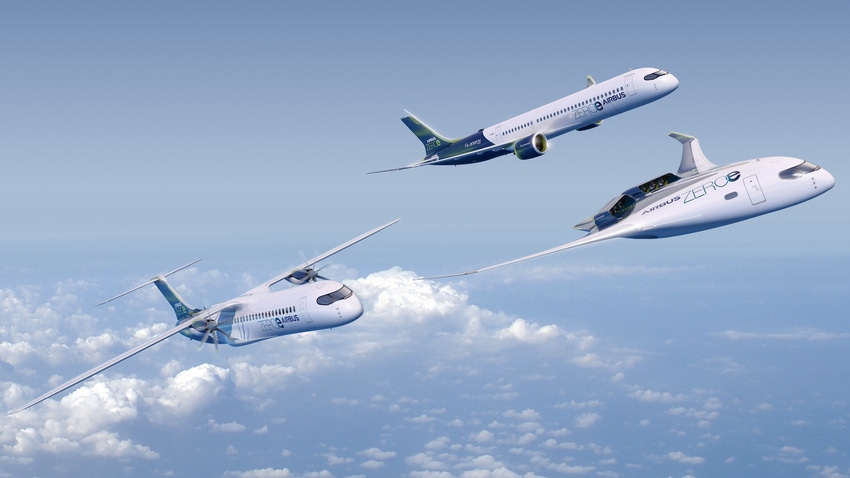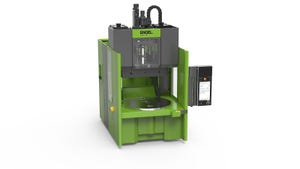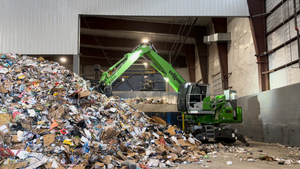Airbus Opens Hydrogen Tech Center in Germany
A priority is the development of cost-competitive, lightweight hydrogen systems in composites to further the goal of getting a hydrogen-powered aircraft in the sky by 2035.
January 28, 2024

At a Glance
- Will accelerate development of composite hydrogen-system technologies for storing and distributing cryogenic liquid hydrogen
- The Stade, Germany, site is part of a network seeking to decarbonize the aerospace industry
Airbus is strengthening its presence in Germany with the opening of a ZEROe Development Centre (ZEDC) for hydrogen technologies at its Stade site. The center will accelerate the development of composite hydrogen-system technologies for storing and distributing cryogenic liquid hydrogen.
A priority for the ZEDC is the development of cost-competitive, lightweight hydrogen systems (e.g., cryogenic hydrogen tanks) in composites. The technology development will cover product and industrial capabilities from elementary parts and assembly to manufacturing-related testing of liquid hydrogen (LH2) composite tanks. The tank development is coordinated with the other Airbus national entities.
“Establishing a composite-related ZEDC in Germany strengthens our research and technology footprint in the country and ensures the involvement, from the start, of leading experts to support our decarbonization ambition. Furthermore, the ZEDC will benefit from the wider composite research and development ecosystem, such as the Airbus subsidiary Composite Technology Center (CTC GmbH), the CFK NORD in Stade, as well as from further synergies from space and maritime activities,” said Airbus Chief Technical Officer Sabine Klauke.
The ZEDC in Stade is supported by public funding (from LuFo, Lower Saxony funding, and others) and will also be linked to the planned Innovation and Technology Center Hydrogen (ITZ) in northern Germany to realize the potential of hydrogen technology and contribute to the decarbonization of the aviation industry.
The ZEDC Stade is part of a network of development centers for technologies to decarbonize the aerospace industry. It will complement the other activities from Airbus sites in Bremen (Germany), Nantes (France), Madrid (Spain), and Filton (UK) to get a hydrogen-powered aircraft in the sky by 2035.
About the Author(s)
You May Also Like




